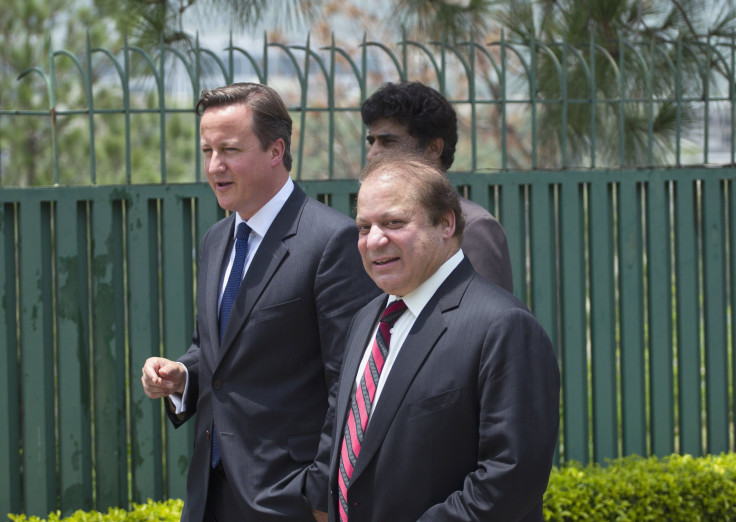David Cameron Urges Pakistan To Get Tough On Terrorists, As Bloodshed Continues Unabated

British Prime Minister David Cameron called for Pakistan to take tougher action against terrorists and extremists, during his first visit to the South Asian country following the election of new Prime Minister Nawaz Sharif. “This is a battle that, yes, requires tough and uncompromising security response,” Cameron said on Sunday in Islamabad at a joint press conference with Sharif.
The British leader said London was committed to helping Pakistanis by providing technical support with respect to counter-terrorism measures, particularly in dealing with improvised explosive devices, the favored weapon of terrorists. "In this battle, the friends of Pakistan are friends of Britain, enemies of Pakistan are enemies of Britain, and we will stand together and conduct this fight against extremism and terrorism together," Cameron noted.
Cameron’s comments on terrorism were timely, as they came in the wake of yet another militant attack that killed at least 53 people in separate incidents in Quetta in the southwest and Peshawar in the north. Sharif noted that Pakistan has suffered the most in terms of human and financial losses from terrorism. “We are, therefore, resolved to tackle the menace of extremism and terrorism with renewed vigor and close cooperation with our friends,” Sharif said.
Dawn, an English language Pakistani daily, noted that since 2004, more than 40,000 people have been killed in terrorist attacks in the country, resulting in an economic loss of some $60 billion. About 2,500 people have already died in such violence so far this year alone. Cameron is also the first foreign head of state to visit Islamabad since Sharif formed a new government under the leadership of his Pakistan Muslim League party.
The British Prime Minister also asked Sharif to improve relations with Hamid Karzai, the president of Afghanistan, in tandem with the opening of an office of the Taliban in Doha, Qatar. Cameron had visited with Karzai in Kabul just prior to arriving in Pakistan, where he sought to convince the Afghan leader to engage in peace talks with the Taliban. Cameron seeks to serve as a peace broker between Pakistan, Afghanistan and the Taliban. “I profoundly believe that a stable, prosperous, peaceful, democratic Afghanistan is in Pakistan’s interests, just as a strong, stable, peaceful, prosperous and democratic Pakistan is in Afghanistan’s interests,” Cameron stated in Islamabad. “And I know that you and President Karzai will work together towards those ends.”
However, relations between Kabul and Islamabad are extremely frayed, given Karzai’s suspicion that some member of Pakistan’s government and military are supporting the Taliban in an effort to destabilize the current Afghan regime. Karzai was also perturbed by how Pakistani officials apparently pushed for the opening of the Taliban office in Doha. Adding to his ire, the Taliban called their mission “the Islamic Emirate of Afghanistan” (their alternative name for the country when it ruled prior to 2001). Karzai himself complained to Cameron during the latter’s stay in Kabul: “I don’t know what Pakistan’s benefit is in following an agenda of weak governance in Afghanistan.” Relations between Afghanistan and Pakistan sank to a new low last month when Naqeebullah Ibrahimkhel, an Afghan diplomat, was shot in Islamabad.
Separately, Cameron and Sharif said they want to increase trade between Britain and Pakistan -- by raising the bilateral trade volume to £3 billion ($4.57) by 2015 (up from a previous target of £2.5 billon). “The U.K. will continue to play its leading role in the international community to support Pakistan to enhance economic growth, including through increased market access to the European Union,” read a joint communiqué by both governments.
According to the Pakistan Tribune newspaper, more than 100 British companies are currently operating in Pakistan. These firms includes privately held Mott MacDonald Group Ltd., which is engaged in infrastructure development; consumer goods giant Unilever (NYSE: UL) and big pharma company GlaxoSmithKline (NYSE: GSK).
© Copyright IBTimes 2024. All rights reserved.





















